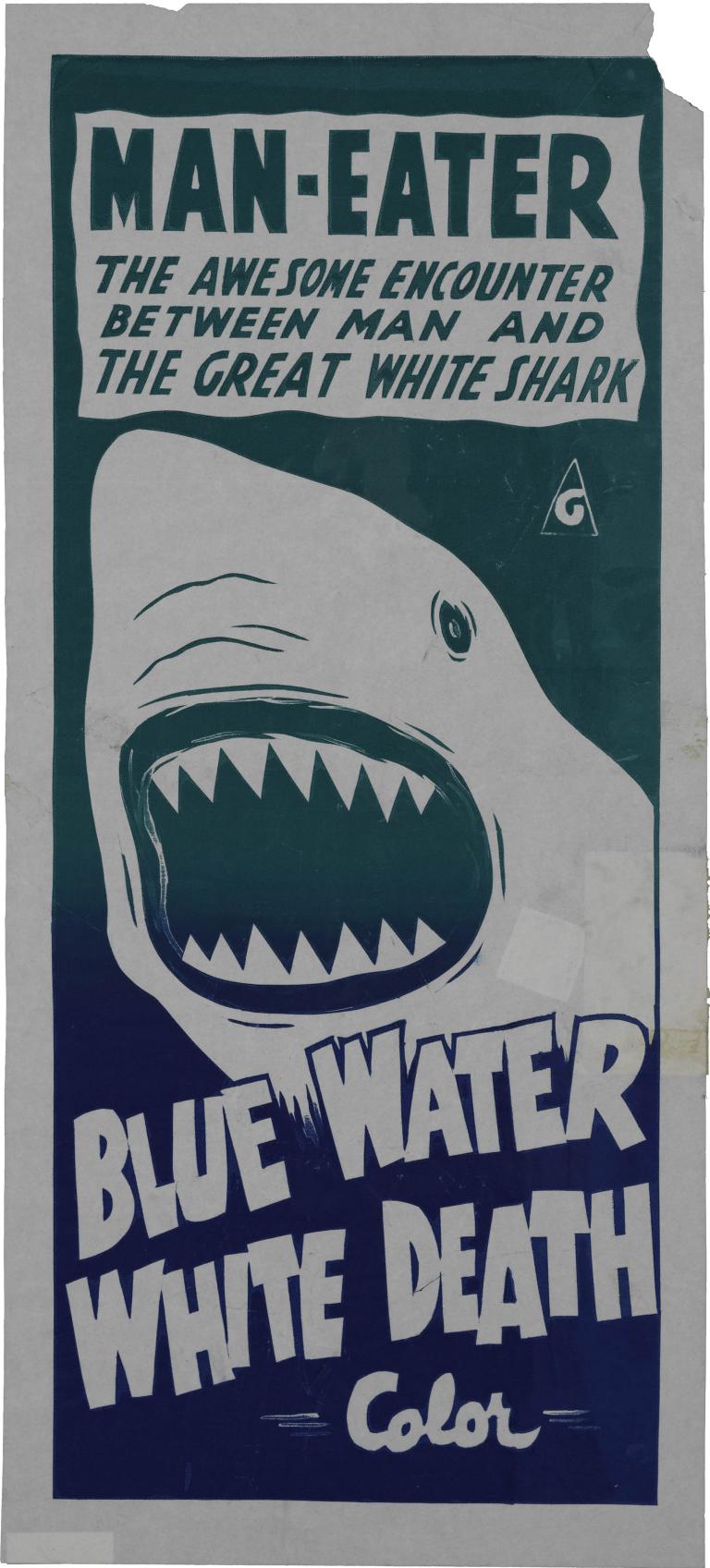
Blue Water, White Death poster
This daybill poster for the oceangoing documentary Blue Water, White Death (directed by Peter Gimbel and James Lipscomb, 1971) was a promotional tool to draw audiences to the cinema and leaned into it being a terrifying ‘man-against-man-eating-beast' adventure, several years before the American blockbuster Jaws (Steven Spielberg, 1975). The marketing ran counter to the actual plot of the documentary, which follows Australian divers, ocean cinematographers and avid shark-loving conservationists Ron and Valerie Taylor on a quest to photograph the great white shark. The documentary reveals that sharks are not monsters to be feared, but wonderful creatures to be admired and protected – a message out of sync with the scary white teeth and gaping jaws on the poster.
Ron and Valerie Taylor later assisted during the filming of Jaws by capturing footage of great white sharks off the coast of South Australia with a professional stunt performer, Carl Rizzo. Rizzo’s sudden (and understandable) panic at being stuck in a cage and lowered into water teeming with sharks caused thrills and spills of the unscripted kind, and Spielberg was so captivated with the resulting footage that he had the script rewritten to alter Hooper’s fate from shark bait to survivor. Valerie Taylor has continued advocating for sharks. The 2021 documentary Playing with Sharks: The Valerie Taylor Story shows her lifelong commitment to exposing the myths about these misunderstood creatures.
The National Film and Sound Archive of Australia acknowledges Australia’s Aboriginal and Torres Strait Islander peoples as the Traditional Custodians of the land on which we work and live and gives respect to their Elders both past and present.



